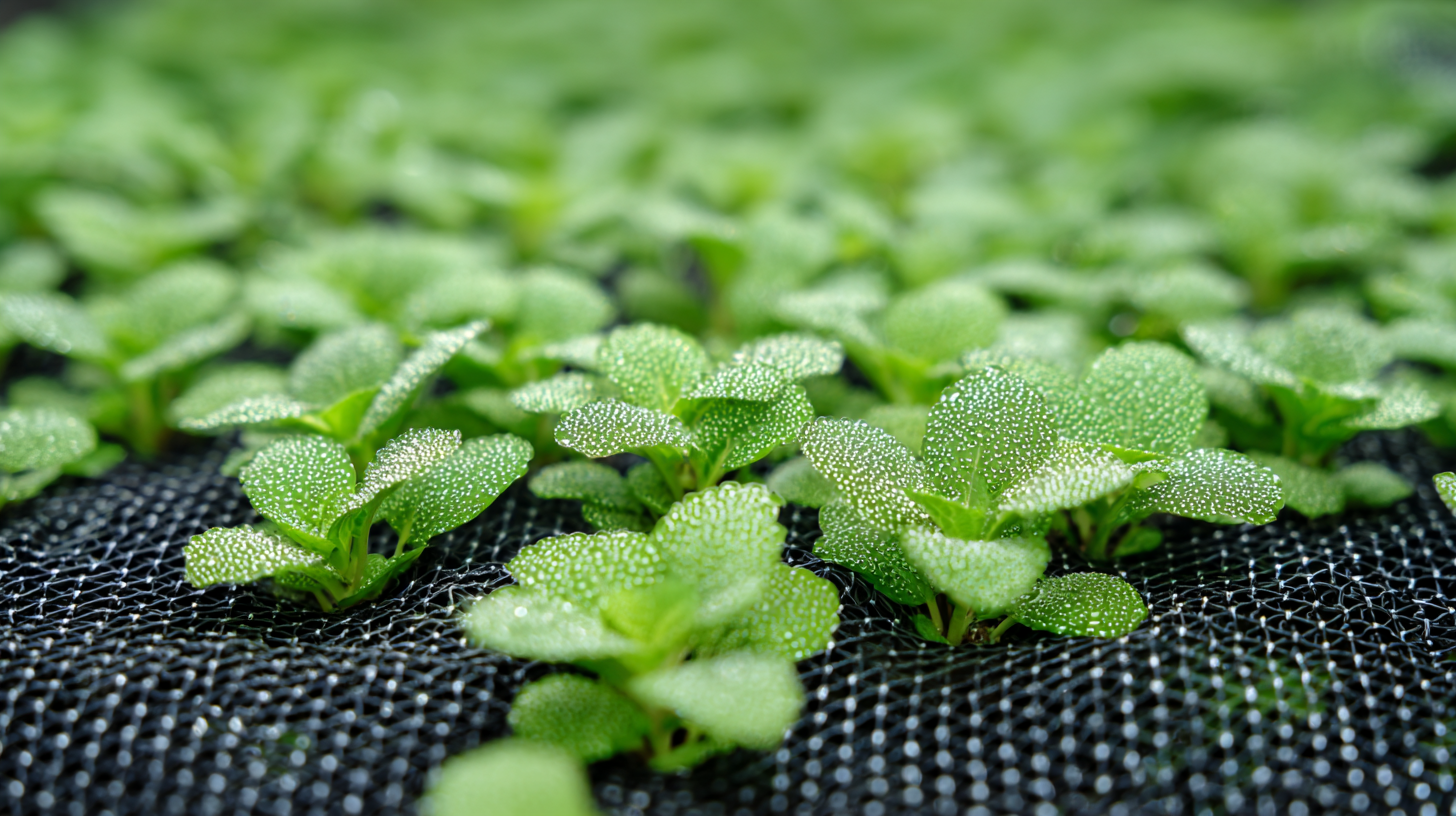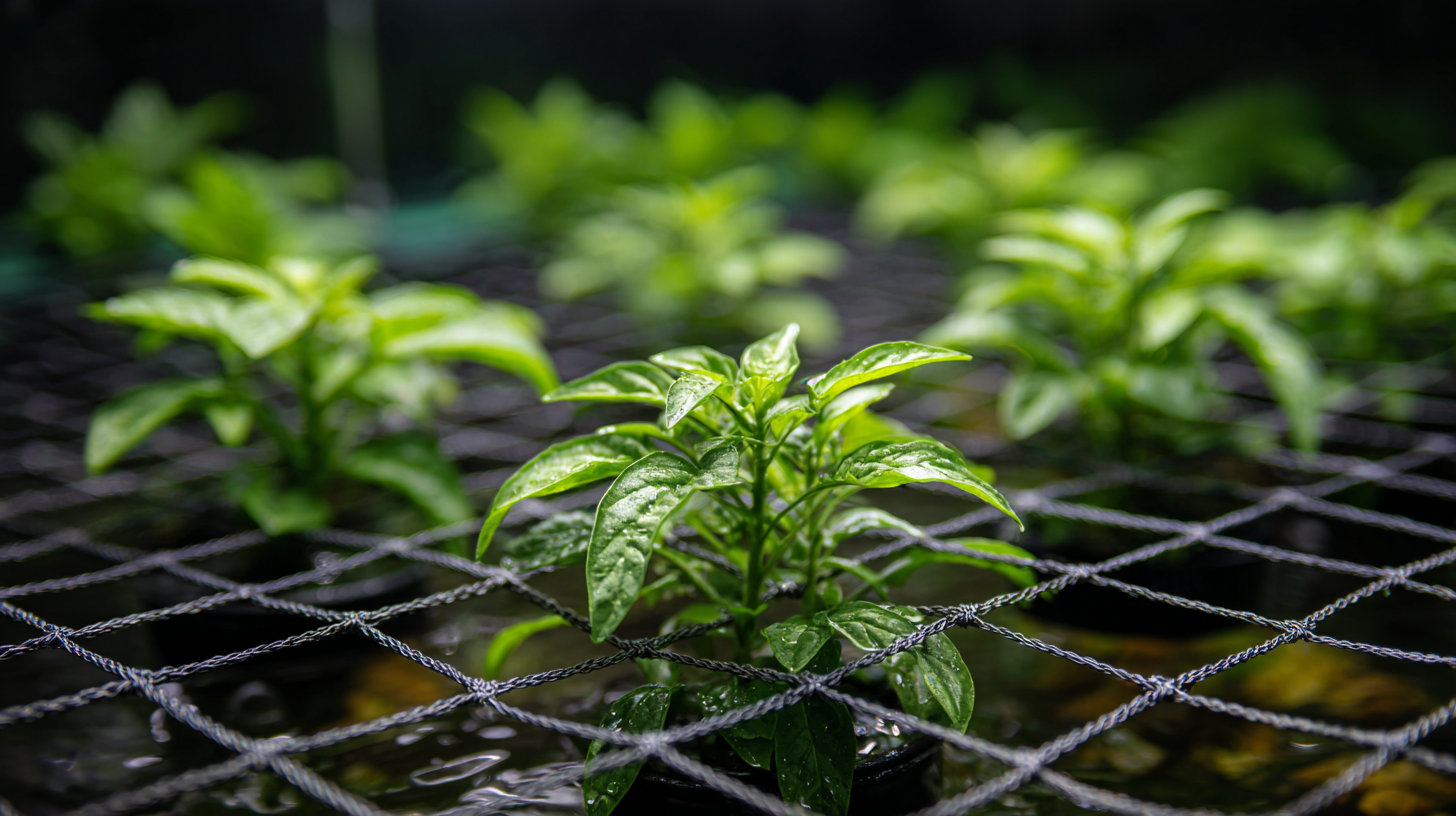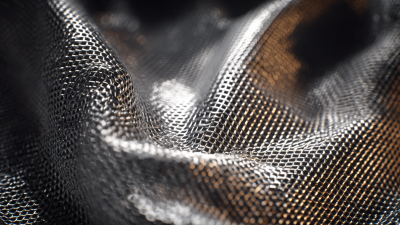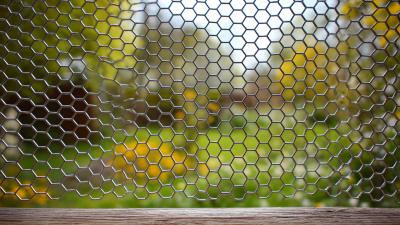 No. 14, Building 2, No. 367 Beijing Road, Chengdu Economic and Technological Development Zone (Longquanyi District)
No. 14, Building 2, No. 367 Beijing Road, Chengdu Economic and Technological Development Zone (Longquanyi District)

In the realm of home gardening, the importance of effective soil and pest management cannot be overstated. One of the innovative solutions that have emerged in recent years is the use of Fine Mesh. According to industry reports by the American Horticultural Society, incorporating fine mesh in gardening practices significantly enhances soil aeration and moisture retention, leading to healthier plants and increased yield. Studies have shown that gardens utilizing fine mesh nets can achieve up to a 30% increase in crop yield while effectively repelling pests without the need for harmful chemicals.
The versatility of fine mesh extends beyond just pest control; it also plays a crucial role in optimizing plant growth conditions. By acting as a barrier to larger insects while allowing beneficial organisms to thrive, fine mesh creates an ideal environment for sustainable gardening. Furthermore, it helps in preventing soil erosion and maintaining nutrient levels, which are critical for cultivating robust and resilient plants. As more gardeners seek sustainable practices, understanding the benefits of fine mesh will not only aid in protecting their plants but also contribute to a more eco-friendly approach to home gardening solutions.

 Fine mesh has become an essential component in home gardening, providing numerous benefits that enhance plant health and yield. According to a report by the American Society of Horticultural Science, using fine mesh can significantly reduce pest damage, with studies showing up to a 50% decrease in infestations when fine mesh barriers are employed. This level of protection not only safeguards plants from common nuisances like aphids and beetles but also minimizes the need for chemical pesticides, promoting a healthier growing environment.
Fine mesh has become an essential component in home gardening, providing numerous benefits that enhance plant health and yield. According to a report by the American Society of Horticultural Science, using fine mesh can significantly reduce pest damage, with studies showing up to a 50% decrease in infestations when fine mesh barriers are employed. This level of protection not only safeguards plants from common nuisances like aphids and beetles but also minimizes the need for chemical pesticides, promoting a healthier growing environment.
Moreover, fine mesh offers crucial support in maintaining optimal growing conditions. Research published in the journal "Horticultural Reviews" highlights that fine mesh netting can help regulate temperature and humidity levels around plants, which is particularly important for tender seedlings. By ensuring proper airflow and minimizing water loss, fine mesh can enhance germination rates by up to 30%, according to a study conducted by the Crop Science Society of America. This means that gardeners can expect healthier plants and potentially higher yields by integrating fine mesh into their gardening strategies.
Fine mesh solutions have become increasingly popular among home gardeners due to their ability to enhance soil retention and drainage. According to a report by the American Society of Horticultural Science, optimal soil moisture levels are crucial for plant growth, and using fine mesh can help maintain these levels by preventing excessive water loss while allowing excess moisture to drain effectively. This dual action helps create a balanced environment, essential for the healthy development of roots.
Moreover, fine mesh materials play a key role in promoting soil aeration. A study published in the Journal of Soil and Water Conservation indicates that improved aeration leads to better nutrient absorption by plants, ultimately resulting in higher yields. By filtering out larger particles and enabling water and nutrients to penetrate the soil without obstruction, fine mesh systems can significantly elevate gardening outcomes, making them an invaluable tool for both novice and experienced gardeners aiming to optimize their growing conditions.
Fine mesh is an invaluable addition to any gardening toolkit, particularly when it comes to managing pests and weeds. Many gardeners struggle with these problems, leading to over-reliance on chemical treatments that can harm beneficial insects and the environment. According to a report by the National Gardening Association, up to 40% of home gardeners face significant challenges from pests, which can diminish their crop yields by as much as 50%. Utilizing fine mesh acts as a physical barrier, effectively inhibiting these unwanted visitors while allowing sunlight and moisture to penetrate.
When considering fine mesh for pest and weed protection, it’s crucial to choose the right type. Opt for mesh sizes under 1mm, which can deter even the smallest pests like aphids and spider mites. Additionally, when installing these barriers, ensure they are anchored securely to minimize gaps that insects can exploit.
**Tip:** Regularly inspect your mesh for any tears or openings that may compromise its effectiveness.
Furthermore, fine mesh can suppress weed growth by limiting light availability—essential for maintaining healthy garden beds. The American Horticultural Society notes that simply incorporating fine mesh can reduce weed populations by up to 70%, thus decreasing the need for labor-intensive weeding and chemical herbicides.
**Tip:** Layer fine mesh over seed beds or young plants to create a protective shield while they establish themselves.

Fine mesh is an excellent addition to any home gardening setup, primarily because it allows for enhanced airflow and light penetration. With many plants, proper air circulation is crucial in preventing diseases and promoting healthy growth. Fine mesh screens create a barrier that protects plants from pests while still allowing fresh air to flow freely. This is essential for maintaining optimal humidity levels and ensuring that plants can respire effectively.
When using fine mesh, consider these tips: First, position your mesh at strategic angles to maximize sun exposure. This ensures that all parts of your plants receive adequate light, which is particularly important for flowering and fruiting plants. Second, regularly check for any debris or blockages on the mesh that could impede airflow. Keeping it clean will enhance its efficiency and longevity. Lastly, opt for UV-resistant mesh to prevent deterioration from constant sun exposure, which ensures sustained benefits for your gardening needs.
Incorporating fine mesh into your garden not only improves airflow and light penetration but also enhances the overall health and productivity of your plants. With the right mesh setup and maintenance, your home garden can thrive, producing lush greenery and bountiful harvests.
Fine mesh materials have become increasingly popular among home gardeners due to their remarkable durability and versatility in various gardening applications. According to a report by the American Society for Horticultural Science, using fine mesh for crop protection can reduce pest damage by over 85%, demonstrating its effectiveness in safeguarding plants. With features such as UV resistance and resistance to tearing, fine mesh can withstand harsh weather conditions, ensuring long-term performance. This durability makes it an ideal choice for creating protective barriers for delicate seedlings, as well as for covering crops to deter insects and birds.
Moreover, fine mesh solutions are not limited to pest control; they serve multiple functions that enhance the gardening experience. For instance, the use of fine mesh in composting systems allows for optimal air circulation while preventing unwanted pests from accessing the compost pile. A study published in the Journal of Agricultural Engineering showcased that using fine mesh in hydroponic systems can significantly improve nutrient filtration, contributing to healthier plant growth. This versatility allows gardeners to utilize fine mesh in various contexts, from greenhouses to garden beds, making it an essential tool for modern gardening techniques.





